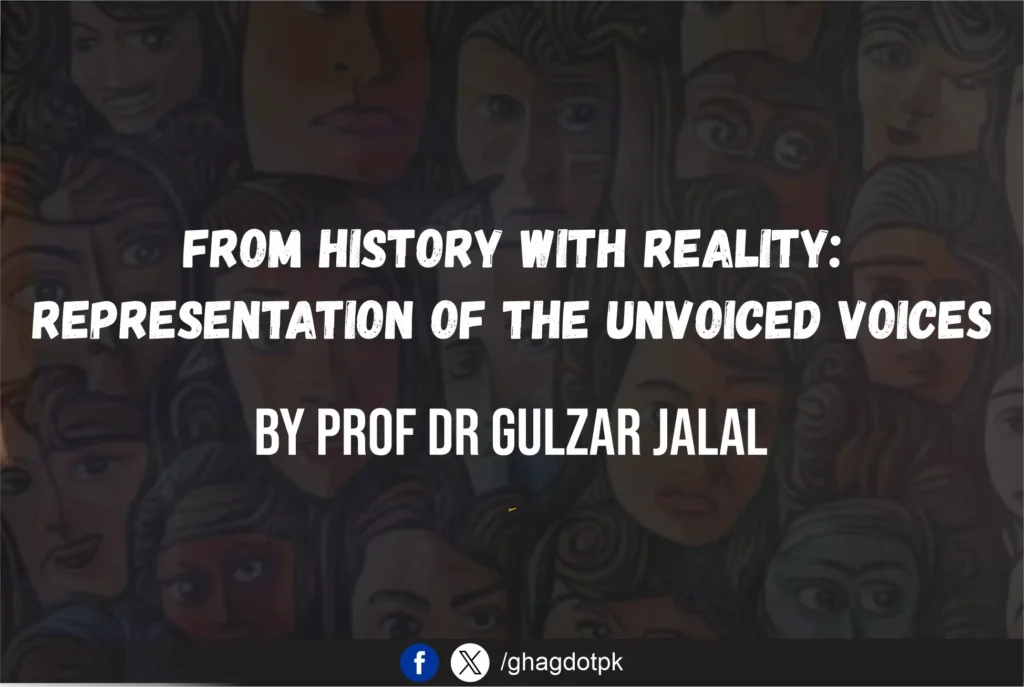Professor Dr Gulzar Jalal:
The Colonial Periods were quite fatal for human values, social norms, intellectual capability and the spirit of equality. The claim of the European nations is always based on the logic and argument that their motives in the colonized countries are to free them from ignorance and to inculcate in them the virtues of civilization and culture. However, in the garb of civilizing the people, the policy of colonialism played havoc with the colonized nations. Colonialism is considered responsible for the genocidal horrors and global hegemony.
A study of history reflects that the Greeks and Romans established a system to subjugate human beings. Their claim of supremacy was based on the supremacy of nationalism; strengthened through language and culture. During their supremacy, we witness the institution of slaves and slavery. Greeks and Romans, however, were replaced by a cluster of European nations who strived to keep the other nations in their clutches. The subjugated communities, during the colonial period, were represented by the colonizer writers in their literary and non-literary works. The controlled states and the natives over there were an experience and a mystery for the colonizers. The colonial texts exhibit that the writers created two major myths or images in their presentations: Racial images and Spatial images.
Leela Gandhi in her book Postcolonial Theory: A Critical Introduction observes that texts are implicated in their economic and political contexts. An analysis of the texts reveals the strategies of the colonizers and their misrepresentations. Loomba in her book Colonialism and Postcolonialism indicates that the study of colonialism is not restricted to delineating the working of power. It includes the resistance, opposition and revolt on the part of the colonized as well. The writers of the period advocated that the East was inferior and the West was superior and that the colonized were uncivilized with primitive culture.
The British after their victory established authority through discourse and textuality. Just as fire can be fought by fire, textual control can be fought by textuality. The critics describe British colonialism as a ‘textual takeover’ of the non-Western world. It was Edwards Said who shifted the study of colonialism among cultural critics towards its discursive operations, showing the inmate connection between the language and forms of knowledge developed for the study of cultures and the history of colonialism and imperialism. The Orient could not represent itself to the world. Colonialism did not work through armies but through literature not just through conquest but through anthropology not just through oppression but justified through narrative. The colonial discourse informs us that Africans are corrupt despots starving victims, Latin Americans are drug lords, football players and dictators, Arabs are terrorists and misogynists and Asians are religious fanatics. However, all this is based on misrepresentation which can be countered through oriental discourse. This brief discussion may seem to be scattered but this can be considered as an introductory approach.
If placed in a contemporary context, the colonial discourse has changed its form, not the content. After its victory in World War II, America emerged as a global power with the strategy of destabilizing other nations and capturing the global market. American colonialism has grown stronger after the collapse of the Soviet Union. The war situation in Iraq, Afghanistan, and Syria speaks volumes for the way American colonialism has become a global threat to the peace and stability of the world. The world needs intellectuals and activists to come up with imaginative creations for sensitizing the masses to the issues globally threatening humanity and its peaceful and productive future.






